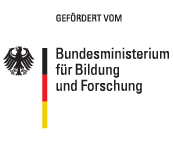DFINEQ II: Development of Poverty and Inequality in Germany and France Over the Past 25 Years
Project period: April 2022 - March 2025
Research Areas:
Tasks
The DFINEQ II project describes two different facets of inequality: spatial inequality and inequality in cognitive and non-cognitive skills. In addition, a comparison is drawn between France and Germany.
For some time now, politicians and the media have been discussing a growing social divide within cities and metropolitan areas and between urban and rural areas. This applies to both Germany and France. Not least because of the disproportionate rise in housing costs in numerous cities and individual urban districts, there is an increased concentration of both high-income and low-income population strata in certain residential areas. One of the consequences of this development is an increasing social segregation in cities, i.e. a spatially unequal distribution of the urban population according to socioeconomic characteristics such as income and education level, and thus ultimately the emergence and growth of wealthy and poor neighborhoods. In addition, there are displacement effects in the cities. In many cases, there are also complaints about the neglect of rural areas, which in some cases leads to disconnected regions. A key objective of this project is to gain a better understanding of regional inequalities within Germany and France in order to develop targeted measures to counteract social segregation.
A further goal of the project is to develop policy recommendations for group-based improvement of equal opportunities. To this end, the influence of cognitive and non-cognitive abilities on life success and thus as a cause of socio-economic inequalities will be investigated. This is particularly important for the design of inequality-fighting policies. While so-called "redistributive" policies aim at redistributing resources, "predistributive" policies start at the origin of inequality and thus aim at creating or at least increasing equity.
Methods
Our project aims to develop a new set of tools in the sense of "Big Data": the combination of heterogeneous, large data sets to identify spatial-socio-economic relationships and regularities. On the one hand, a wide range of satellite data is to be used to record and analyze the physical structures and patterns of the earth's surface and the near-ground atmosphere. In this way, statistics are to be supplemented in a meaningful way, completely independent of administrative spatial units, and thus questions are to be brought into focus that could not previously be investigated. These data will then be combined with small-scale socio-economic indicators in order to analyze their correlations with structural features of the earth's surface and thus demonstrate the usefulness of satellite data for economic research. Thus, for the first time, this project will use both environmental indicators and socio-economic variables to study inequalities at very high spatial resolution. The aim is to analyze inequality beyond the usual economic indicators and to find out to what extent satellite data are useful as proxies for evaluation.
Data and other sources
Mikrozensus, Lohn- und Einkommensteuerstatistik, "Informationen aus der Innerstädtischen Raumbeobachtung (IRB) des Bundesinstituts für Bau-, Stadt- und Raumforschung (BBSR)", F+B Immobiliendaten, Satellitendaten, Sozio-ökonomisches Panel


